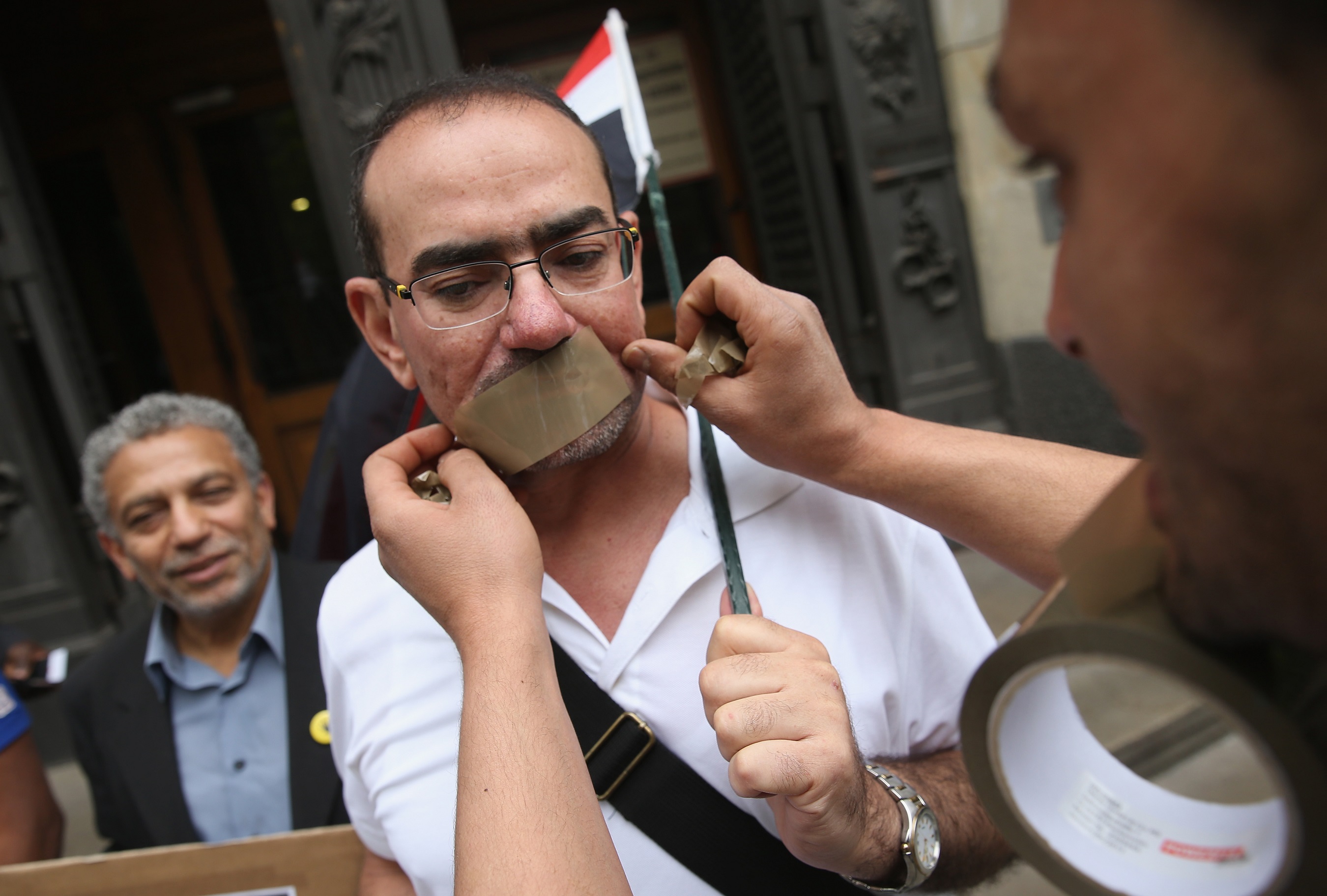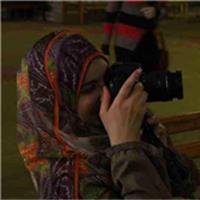نصّت المادة (19) من الإعلان العالمي لحقوق الإنسان على أن: "لكلِّ شخص حقُّ التمتُّع بحرِّية الرأي والتعبير، ويشمل هذا الحقُّ حرِّيته في اعتناق الآراء دون مضايقة، وفي التماس الأنباء والأفكار وتلقِّيها ونقلها إلى الآخرين، بأيَّة وسيلة ودونما اعتبار للحدود"، وذلك على اعتبار أن (حرية الرأي والتعبير) حق طبيعي لكل إنسان، بيد أن واقع ممارسة هذا الحق في العصر الحديث أوجد اختلافات كبيرة في فهم حدوده وتعريفه، فكانت الممارسة الإعلامية التي يشكل هذا الحق جوهرها، متغيرًا تابعًا للمناخ السياسي المحيط بها، ومساحة الحرية المكفولة فيه، وأشكال الصراع السياسي الداخلي والخارجي.
وعلى سبيل المثال، في أعقاب ثورة الخامس والعشرين من يناير 2011 في مصر، تعرضت الممارسة الإعلامية لتغيّرات كبيرة، بين الانفتاح الشديد الذي بلغ حد الفوضى أحيانًا، والقيود الكبيرة التي قلصت حجم الممارسة في أحيان أخرى.
بيد أن مساحة الحرية في البيئة الإعلامية كانت من أهم ضمانات الالتزام الأخلاقي في الممارسة الإعلامية، إذ أشارت نتائج دراسة مسحية قمت بإجرائها في منتصف العام 2012، على مجموعة من الصحفيين بصحف (الأهرام والوفد والمصري اليوم)، إلى وجود علاقة ارتباطية طردية بين مساحة الحرية في البيئة الإعلامية وإمكانية تحقيق الموضوعية في النشر؛ أي أنه كلما زادت مساحة الحرية في المناخ الإعلامي، زادت فرصة الالتزام بالموضوعية. وكان تفسير ذلك من واقع ما أقره الصحفيون أنفسهم، أنه في ظل مناخ تسوده الحرية، تُرفع القيود عن عمل الصحفي وتقل التدخلات الخارجية في عمله، ومن هنا يكون العمل متروكاً لـ"ضمير الصحفي".
وقد اتفق الصحفيون -عينة الدراسة- على أن البيئة الإعلامية في ذلك الوقت، لم تكن مقيدة بشكل كامل كما لم تكن مطلقة الحرية، فبينما رُفعَت الخطوط الحمراء التي كانت مفروضة عليهم قبل ثورة 25 يناير 2011، وفتح تنامي وجود المؤسسات الخاصة آفاق الحرية والتنوع بشكل كبير؛ فُرضَت الكثير من المحاذير التي واجهت الصحفيين داخل المؤسسات أو خارجها، كان أهمها القواعد التي فرضتها اللجنة العليا للانتخابات على التغطية، وتوجيهات القيادات الصحفية وتدخلاتهم في العمل اليومي للصحفيين بسبب التنافسية التي فرضها الحدث الانتخابي، كما فرض نمط الملكية في كل صحيفة قيودًا أخرى على الصحفيين، فمنعت صحيفة الوفد أي صحفي من التعرض للمرشح الذي يدعمه حزبها، كما منعت الصحف الحكومية التعرض للجهات الحاكمة، وهو ما أعطى مؤشرًا بإمكانية تحقيق نموذج موضوعي في الصحافة إذا ما زادت مساحة الحرية فيها.
وعلى الأرض نفسها وفي ظرف سياسي مختلف، أصدر المجلس الأعلى للإعلام في 18 مارس 2019 لائحة الجزاءات والتدابير الخاصة بقانون تنظيم الصحافة والإعلام رقم (180) لعام 2018، التي جاء ملخصها في مجموعة من العقوبات تبدأ بلفت النظر والإنذار ودفع غرامات مادية تصل إلى 250 ألف جنية مصري أو ما يعادلها بالعملات الأجنبية، ومنع نشر وبث المواد الصحفية والإعلامية، وحجب الصحف أو المواقع أو القنوات، وتصل حتى حجب المواقع الإلكترونية الشخصية التي يزيد عدد متابعيها عن خمسة آلاف شخص (الأمر الذي وصفه معارضون بأنه تعدٍ على الحقوق والحريات الشخصية).
وفور صدور اللائحة، أعلن المجلس القومي لحقوق الإنسان في مصر رفضه لها، معللًا ذلك بأنها لا تتوافق مع الحق في حرية الرأي والتعبير، إذ قال المجلس في بيانه المنشور في الصحف المحلية إن "بنود هذه اللائحة تضمنت قيودًا على ممارسة حرية الرأي والتعبير والصحافة بكافة وسائلها، سواء المطبوعة أو المرئية أو الإلكترونية"، كذلك رفض اللائحة أكثر من 600 صحفي وشخصية عامة، عبر مذكرة تفصيلية تقدموا بها إلى المجلس الأعلى للإعلام ونقابة الصحفيين، واصفين تلك اللائحة بأنها "امتداد طبيعي لقوانين إعدام الصحافة"، حيث قالوا إنها تتعدى انتهاك القانون والدستور إلى "مصادرة الحق فى المعرفة وتداول المعلومات، ووصولا إلى اغتيال حق المواطنين فى التعبير عن آرائهم".
نقيب الصحفيين المصريين، ضياء رشوان، علق على اللائحة وحركات الرفض القائمة ضدها، في بيان نشره على صفحته الرسمية على فيسبوك جاء فيه "إن نقابة الصحفيين في تشكيلها الجديد، نقيباً ومجلساً، سوف تناقش كل مواد هذه اللائحة فور الانتهاء من تشكيل هيئة مكتبها، في ضوء تقرير الملاحظات الذي سبق لمجلس النقابة في تشكيلته السابقة، أن أقره في جلسة 8 يناير 2019 وقام بإرساله للمجلس الأعلى لتنظيم الإعلام". وأكد نقيب الصحفيين أن النقابة ستقارن اللائحة التي تم إصدارها بالملاحظات التي تضمنها التقرير المشار إليه، والذي وافق عليه مجلس نقابة الصحفيين بإجماع الحاضرين، وما تم الأخذ به منها وما تم تجاهله"، وأكد ضرورة إعادة النظر في تلك اللائحة في ضوء مواد الدستور وقانون النقابة رقم 76 لسنة 1970، حفاظًا على الحقوق الثابتة للصحفيين والنقابة.
وكان الرئيس الأسبق للجنة الحقوق والحريات في مجلس نقابة الصحفيين المصرية خالد البلشي من بين المعترضين على اللائحة، واصفًا إياها في مقال نشره على موقع (المشهد) الإلكتروني، بأنها "إعلان وفاة الصحافة"، ورأى البلشي أن اللائحة تأتي "لإكمال مشهد فرض الصمت التام على كل وسائل الإعلام بكل أشكالها صحف وقنوات أرضية وفضائية ومواقع الكترونية (عامة وخاصة)، وصولا إلى صفحات ومواقع التواصل التي يزيد عدد متابعيها عن 5 آلاف متابع"، ووصف – في مقاله - بنود اللائحة بأنها جرائم كاملة في حق المجتمع وتأتي لتأميم مهنة الصحافة، وتصادر الحق في المعرفة وتداول المعلومات وتغتال حق المواطنين في التعبير عن آرائهم.
وفند البلشي نقده للائحة في أنها اغتصبت سلطة القضاء بأن منحت المجلس سلطة فرض عقوبات جنائية على الصحف والمؤسسات كالغرامات (المبالغ فيها)؛ كما تفتح المادة (10) منها الباب لمضاعفة العقوبات الواردة فيها حال تكرارها دون اللجوء للقضاء؛ كذلك اعتدت اللائحة على سلطة النقابات في معاقبة أعضائها تأديبيا... لتضع المجلس الأعلى للإعلام في مقام الوصاية على النقابات؛ وفي نفس الإطار قال البلشي إن اللائحة تجعل من المجلس الأعلى للإعلام حسيبًا ورقيبًا يعاقب بمجرد العلم؛ وفتحت الباب في المادة (27) أمام المجلس لمنع ظهور الإعلاميين والأفراد حال ارتكاب (ما يشكل جريمة جنائية) - أي دون انتظار لحكم القضاء.
واستنادًا للأسباب السابقة، طالب البلشي في نهاية مقاله بإلغاء اللائحة والطعن على نصوصها كاملة، وتفعيل توصية من الجمعية العمومية بإعادة النظر في قوانين إعدام الصحافة واستبدالها بقوانين تضمن حق الصحفيين والإعلاميين في العمل بحرية وحق المجتمع فى المعرفة والتعبير وتدفق المعلومات.
وجاء تطبيق تلك اللائحة بشكل عاجل جدًا وقبل النظر في الاعتراضات التي أثيرت ضدها، فبعد يومين فقط، تم حجب صحيفة وموقع (المشهد) الإلكتروني لمدة ستة أشهر، وفُرٍضَت عليها غرامة مالية قدرها 50 ألف جنيهًا مصريًا، على خلفية اتهام الجريدة "بالخوض في أعراض إحدى الإعلاميات وعدد من الفنانات، ونشر إحدى الصور الإباحية على موقعها الإلكتروني، وسب إحدى الفنانات والتحقير من شأنها، ومخالفة الآداب العامة وميثاق الشرف المهني والمعايير والأعراف المكتوبة (الأكواد)"، وذلك دون الإشارة إلى أي مادة صحفية بالموقع تحتوي على الاتهامات المذكورة- حسب ما أوردته الصحيفة في بيانها عن الحادثة.
وكان الموقع قد نشر خبر الحجب والتغريم مصحوبًا بصورة من قرار المجلس، نافياً الاتهامات ومؤكداً أن الموقع يتبع أعلى درجات المهنية ولا يتطرق إطلاقا للسب أو الخوض في الأعراض، كما يمتنع تماما عن نشر أي صور مسيئة، ويعتبر هذه التهم ملفقة إلى أن يوافيه المجلس بالمواد محل التهم".
ورأت أصوات داخل الجماعة الصحفية في نفي الصحيفة كشفًا لحجم العوار بلائحة الجزاءات، إذ أنها لا تستند لأي بحث أو تحقيق لتلك الاتهامات، أو النظر في الموضوعات محل الاتهام، وإنما يتم تطبيقها بشكل قمعي تعسفي.
من جهته، طالب عضو مجلة نقابة الصحفيين عمرو بدر بإسقاط اللائحة، في وقت دافع رئيس المجلس الأعلى للإعلام مكرم محمد أحمد عن اللائحة، منتقداً المعترضين، ومؤكداً على دستوريتها وقانونيتها، ونافياً أن يكون المجلس قد "قام بمساءلة صحفي على خلاف ما يروج بعض أعضاء النقابة".
اللائحة المثيرة للجدل تعطي مساحات كبيرة للعقوبات، ولمضاعفتها حال تكرار الجرائم المستحقة للعقاب، بل وتتعدى ذلك في المادة (26) منها المتعلقة بحقوق الملكية الفكرية لتصل الغرامة المالية فيها إلى خمسة ملايين جنية أو ما يعادلها بالعملات الأجنبية، وتنال من كل حق عام أو خاص يتعلق بحرية التعبير، فبدأت بالصحف ووسائل الإعلام المسموعة والمرئية، ووصلت إلى الصفحات الشخصية على مواقع التواصل الاجتماعي، التي يتعدى عدد متابعيها خمسة آلاف شخص، وانتهت بالصحفيين أنفسهم ومنعهم من الظهور على أية وسيلة من وسائل الإعلام خلال فترة العقوبة، الأمر الذي يؤكد معظم الانتقادات الموجهة إليها.
وعلى الرغم من كفالة حق التظلم للمتضررين في المادة (28) من اللائحة، جاءت المادة (29) منها لتجعل من المجلس الأعلى للإعلام خصمًا وحكمًا، إذ يتم تشكيل لجنة فحص التظلمات بقرار من رئيس المجلس نفسه، كما ترفع اللجنة توصياتها ونتائجها لرئيس المجلس ليتخذ قراره بشأنها.
لائحة الجزاءات تلك تفرض أسئلة مشروعة على الشارع الصحفي: من ينقذ الجماعة الصحفية من سجن الجزاءات الذي يفتح أبوابه ليستقبل الجميع؟ وإلى متى تظل الصحافة متغيرًا تابعًا لأنظمة الحكم؟ وما الضمانة الحقيقية لحرية التعبير ما لم تستطع النصوص الدستورية حمايتها؟
مراجع
https://www.almasryalyoum.com/news/details/1380066
https://www.almasryalyoum.com/news/details/1354394
https://www.facebook.com/Deyaa.Rashwan/photos/a.919861698035985/2332756746746466/?type=3&theater
https://elmashhad.com/Post/details/105019/








































